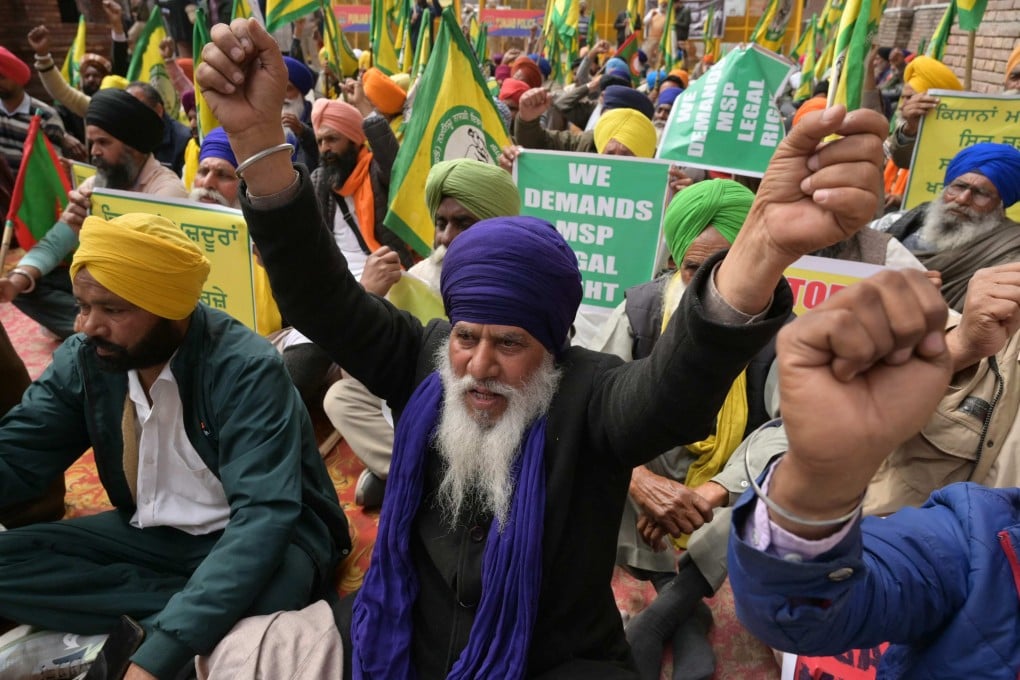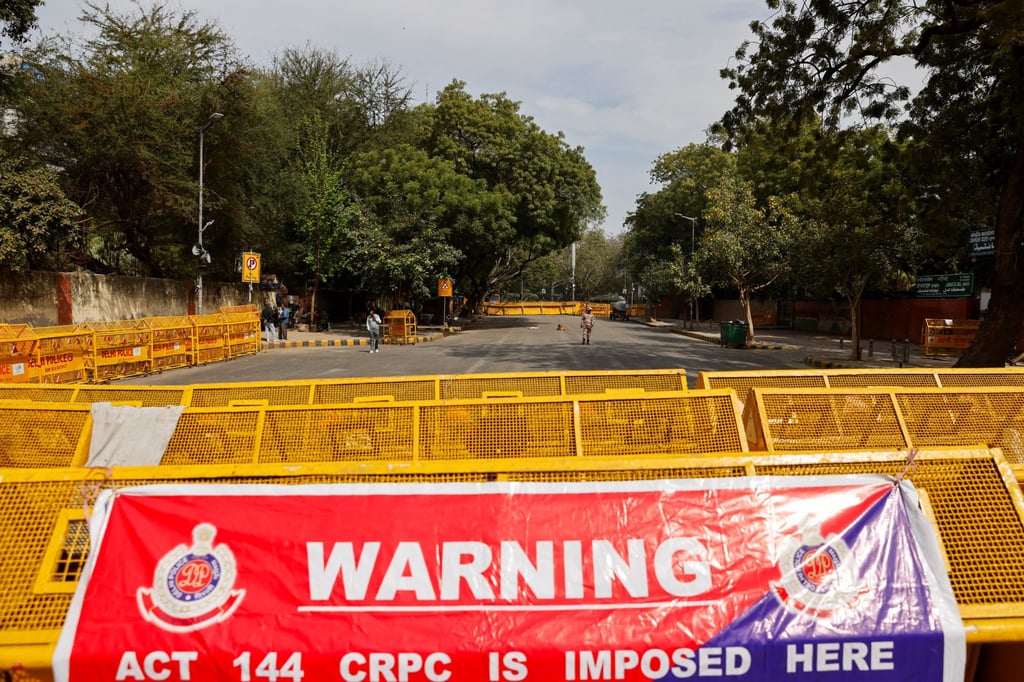India’s protesting farmers close in on New Delhi with new strategy to avoid police – travelling separately in cars and buses
- The farmers have been advised to travel by buses and cars to avoid police blockades instead of marching in large groups
- Their demands include loan waivers and introducing legislation on minimum support prices for crops

Protesting farmers in India resumed their march towards New Delhi on Wednesday after a brief hiatus and have changed their tactics in a bid to thwart attempts by Indian authorities to stop them.
Rather than marching as large groups, participants have been advised by protest leaders to disperse and travel by buses and cars to avoid police blockades that have been set up around the capital’s three main entry points.
The tactical change comes after convoys of farmers representing the “Delhi Chalo” (Let’s Go to Delhi) movement met fierce resistance previously from authorities who were attempting to turn them back towards Punjab, where most of the protesters come from.
The movement is aiming to pressure India’s ruling Bharatiya Janata Party (BJP) government into meeting the protesters’ demands, including loan waivers and new legislation on minimum support prices (MSP) for crops.

Protest leaders say the authorities’ attempts to stop the march before it reaches Delhi are not only undemocratic but also likely to fail, as the farmers are unlikely to back down until their demands are met.
